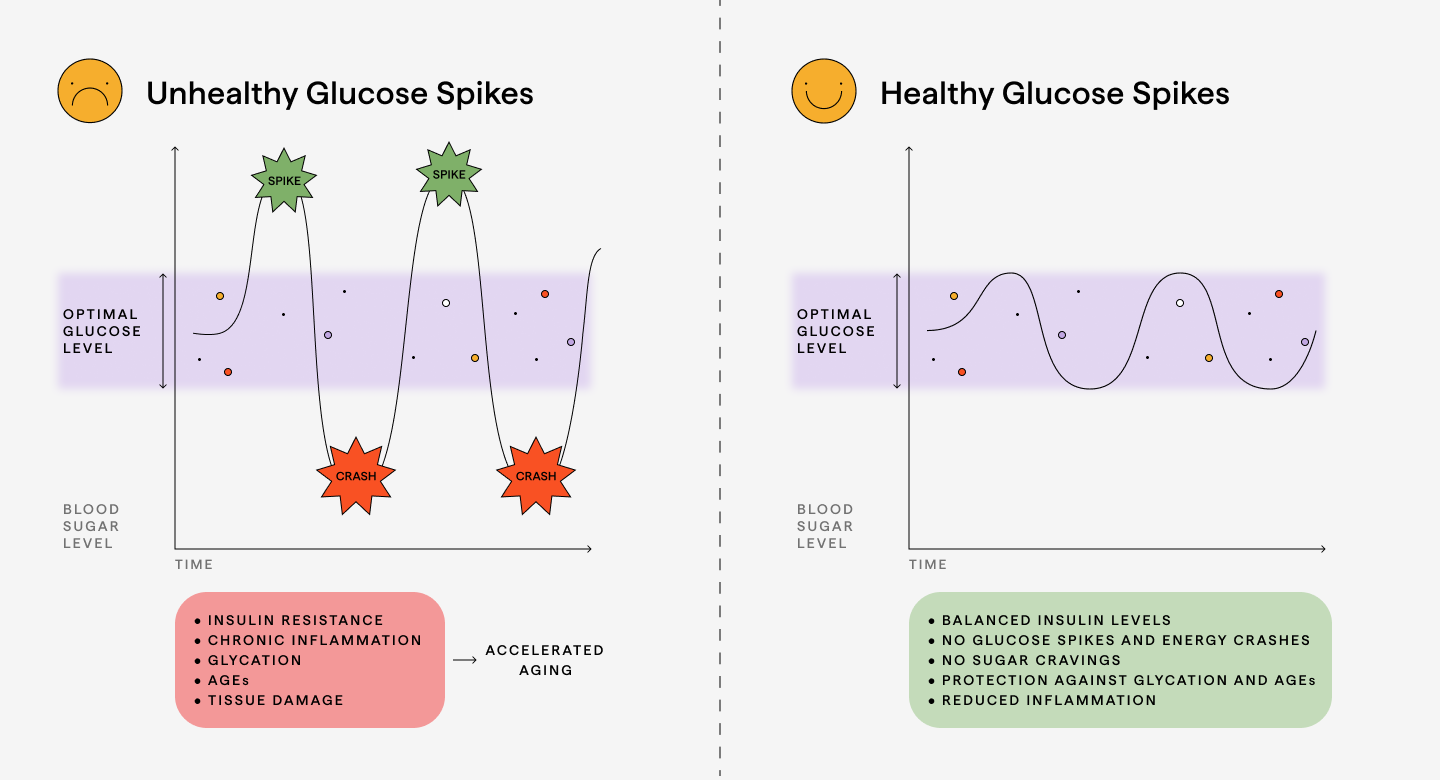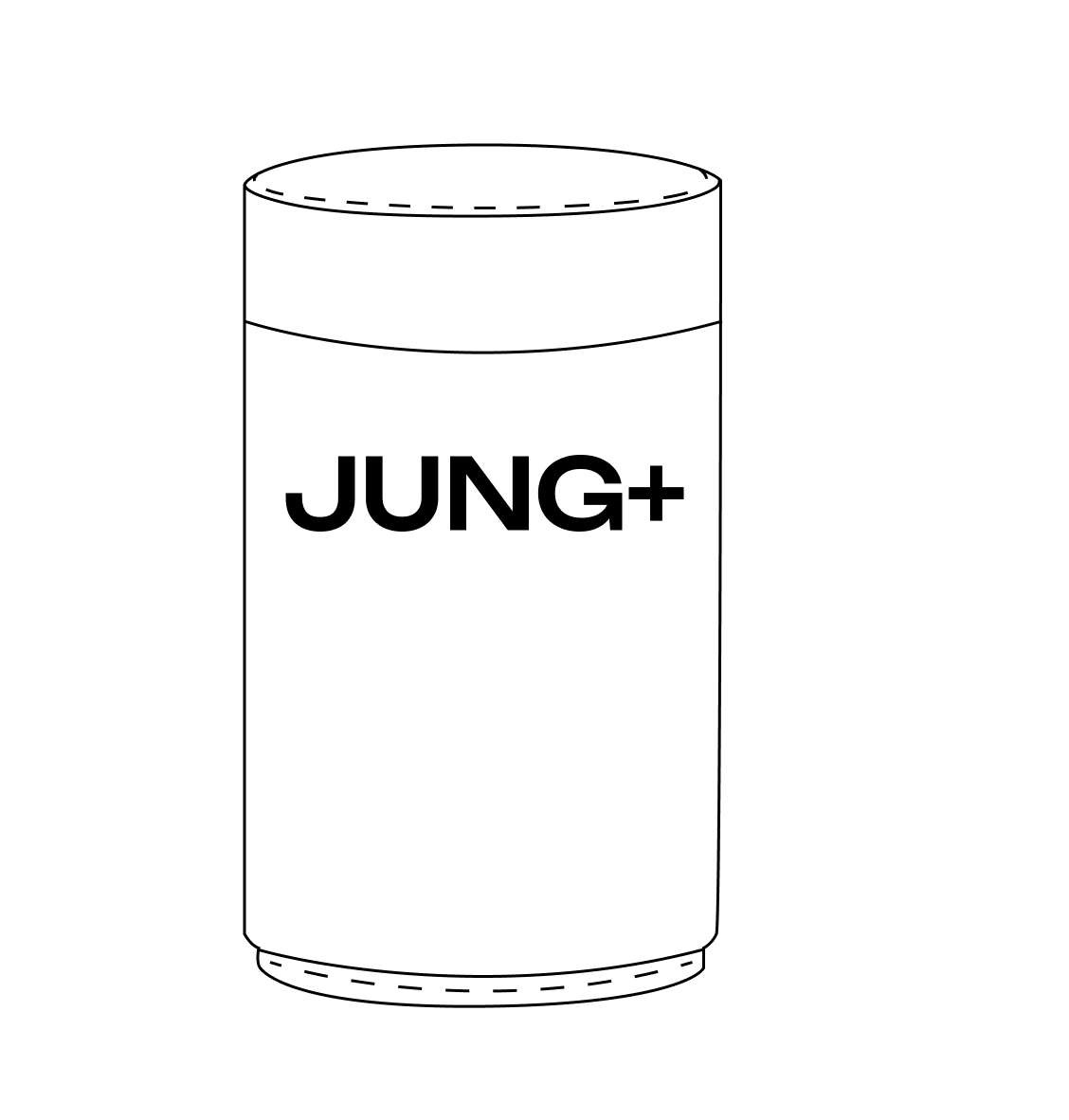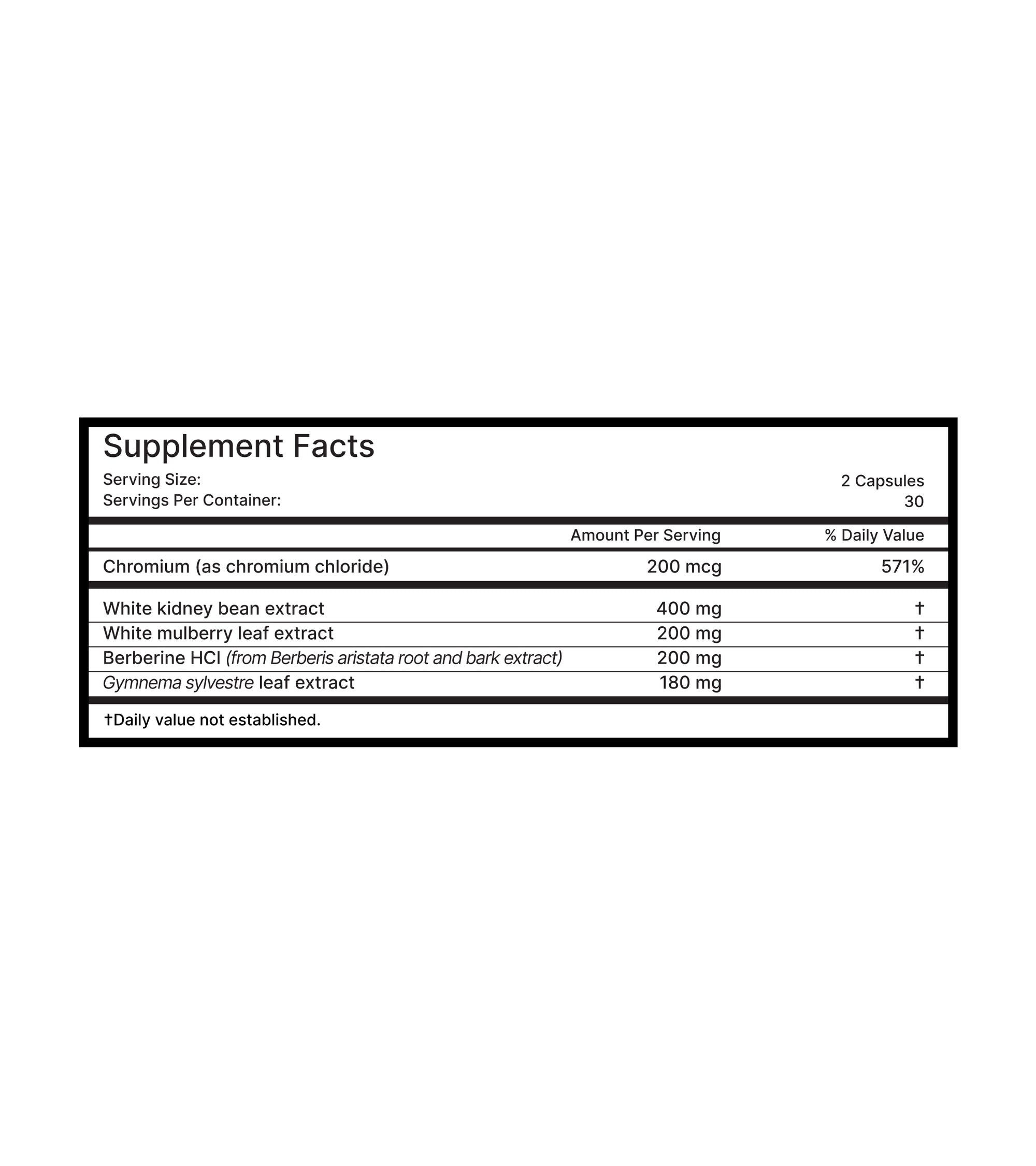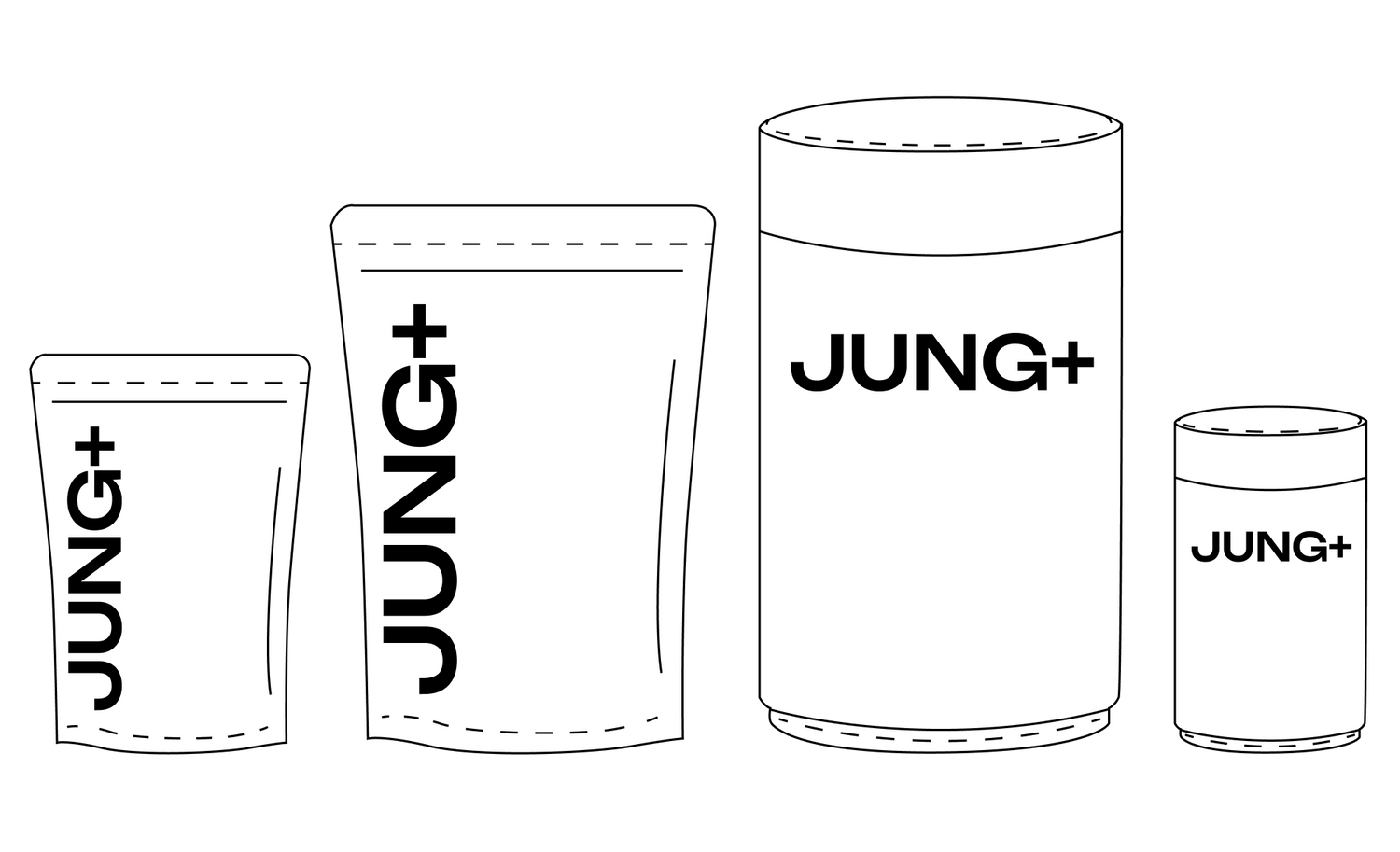Glucose Blocker
Our Glucose Blocker, taken with meals, helps combat one of the leading lifestyle contributors to premature aging - volatile blood glucose levels. Modern diets are saturated with glucose, present in everything from processed carbohydrates to sugary desserts. Constant high blood glucose levels can result in insulin resistance and stimulate glycation, leading to inflammation, oxidative stress, and tissue harm - significant factors in skin aging. Glucose Blocker regulates post-meal glucose levels, providing steady energy without severe spikes and crashes associated with carb intake. Its natural ingredients decelerate glycation, prevent oxidative stress, and possess anti-inflammatory properties. Our proprietary formula features Berberine, an extraordinary molecule recognized for its ability to activate critical pathways linked to longevity. Plus, Glucose Blocker helps curtail the absorption of sugar-related calories, aiding in weight management and sugar reliance. Enjoy your carby meals with less guilt!
Couldn't load pickup availability
As seen in
Cheat your cheat meals


Why it’s different
-
Defy Blood Sugar Spikes
From Carbs and Sugars
-
Combat Aging and Wrinkles
Caused by Glycation (Caused by Sugars)
-
Fend Off Sugar Cravings
Say Goodbye to the Sweet Tooth
-
Support Your Weight Loss Journey
Reimagine Calorie Absorption
-
Cheat Your Cheat Meals
Perfect for Keto Warriors
-
Combat Inflammation, Bolster Antioxidant Defense
For Whole Body Health
-
Dodge Energy Crashes
Triggered by Glucose Spikes
-
Boost AMPK and FOXO3A Longevity Proteins
For Healthy Longevity
-
Unveiling Berberine
One of Longevity's Best Kept Secrets
How to use
you, like new
you, like new
you, like new
you, like new
you, like new
you, like new
you, like new
you, like new
you, like new
you, like new
you, like new
you, like new
you, like new
you, like new
you, like new
you, like new
you, like new
you, like new
you, like new
you, like new
you, like new
you, like new
you, like new
you, like new
you, like new
you, like new
you, like new
you, like new
you, like new
you, like new

Look inside
-
Chromium Chloride
200 mcg
Chromium is a trace mineral that plays a vital role in glucose metabolism, and it enhances insulin sensitivity and glucose uptake in cells, thus reducing blood sugar levels. Studies have shown that chromium supplementation can improve glucose control in people with diabetes, reduce the risk of developing diabetes, and improve insulin resistance in people with metabolic syndrome. In addition, chromium supplementation has been shown to have anti-aging effects, such as reducing oxidative stress and inflammation and improving lipid metabolism. It can be found in broccoli, but to get 20mg of chromium from broccoli alone, you would need to consume 100 cups of cooked broccoli (20, 21, 29, 36, 40-43).
-
White mulberry leaf extract
200 mg
White mulberry leaf extract (Morus alba) has been traditionally used in Chinese medicine and Japanese tea for centuries. It contains 1-deoxynojirimycin, which limits carbohydrate breakdown into glucose, reducing glucose absorption and lowering post-meal blood sugar levels. Additionally, it possesses antioxidant properties and reduces inflammation. Research indicates its efficacy in improving glucose control and insulin sensitivity, and in reducing diabetes risk (2, 4, 20, 38, 44-46). To get the same amount of 1-deoxynojirimycin as in Glucose Blocker you would need to eat 1kg (2.20 lbs) of ripe figs.
-
Berberine
200 mg
Berberine, found in plants like Huanglian, Barberry, Oregon grape, and Tree Turmeric, is a traditional Chinese remedy for ailments including blood sugar. It's a powerful activator of the pro-longevity AMP-activated protein kinase (AMPK) signaling pathway, crucial for glucose metabolism (26-28, 35). This results in enhanced glucose uptake, reduced liver glucose production, and increased insulin sensitivity. Berberine's anti-inflammatory and antioxidant properties also help lower the risk of age-related diseases. Studies indicate its effectiveness in improving glucose control, reducing insulin resistance, and enhancing lipid metabolism. Berberine notably extends lifespan and health in model organisms and mice, aiding cell rejuvenation and growth, even under natural aging and chemotherapy-induced senescence.
-
Gymnema sylvestre extract
180 mg
Gymnema sylvestre, known as the "sugar destroyer," is a shrub from tropical forests of India, Africa, and Australia, used in Ayurvedic medicine to suppress sugar taste. Its gymnemic acids bind to the tongue's sugar receptors, reducing sugar's taste. By helping maintain healthy blood glucose levels, Gymnema sylvestre could contribute to a reduction in AGE formation, supporting healthier aging. Gymnema sylvestre is also known for its potential weight loss benefits, studied for its potential to suppress appetite and promote feelings of fullness, which could support healthier weight management (1, 49).
-
White kidney bean extract
400 mg
White kidney bean extract is derived from the white kidney bean (Phaseolus vulgaris) plant, also known as Phaseolus vulgaris extract, Phase 2, or Phaseolamin. The extract is made from plant beans and is rich in a substance called phaseolamin, an alpha-amylase inhibitor. This substance is believed to help prevent the breakdown and absorption of carbohydrates by inhibiting the action of the enzyme alpha-amylase, responsible for breaking down carbohydrates into simple sugars that the body can absorb. As a result, white kidney bean extract is often considered as a weight loss supplement and as a way to help regulate blood sugar levels (2, 18-21).
How can blood sugar spikes affect the 12 hallmarks of aging?
Learn more
Elevated blood sugar levels are linked to the development of many age-related diseases, including heart disease, dementia, and cancer.
Dr. David Sinclair, PhD. Professor in the Department of Genetics at the Paul F. Glenn Center for Biology of Aging Research, Harvard Medical School
Scientific studiеs
-
AGEs are associated with an increased risk of cardiovascular disease and mortality in older adults. The study followed over 1,000 participants for a median of 9 years and found that those with higher levels of AGEs had a significantly higher risk of cardiovascular events and death. The authors suggest that reducing AGE intake through dietary modifications or supplements may help improve longevity and reduce the risk of chronic diseases (50).
-
In this study, researchers investigated the effects of chromium and polyphenols from cinnamon on insulin sensitivity in human and animal subjects. The results showed that supplementation with chromium and cinnamon improved insulin sensitivity and glucose metabolism, suggesting a potential role in managing glucose levels. The study provides evidence for using chromium to control glucose levels and insulin sensitivity (51).
-
The study found that participants who consumed a mulberry leaf extract beverage had a significantly lower postprandial (post meal) glucose response than the control group. The researchers concluded that mulberry leaf extract might help manage postprandial glucose levels and prevent insulin resistance (52).
-
Berberine may have a therapeutic effect on glucose metabolism and insulin resistance. The article suggests that berberine may have a protective effect on various organs in the body, which could lead to increased longevity (34).
-
Gymnema sylvestre administration decreased body weight, BMI, and very low-density lipoprotein levels in subjects with metabolic syndrome.
This clinical study investigated the impact of Gymnema sylvestre, a medicinal plant, on metabolic syndrome, insulin secretion, and insulin sensitivity. The randomized, double-blind, placebo-controlled trial included 24 patients aged 30-60 years, diagnosed with metabolic syndrome. These patients were given G. sylvestre or a placebo twice daily before meals for 12 weeks. Post-administration, the study found significant reductions in patients' body weight, body mass index (BMI), and very low-density lipoprotein (VLDL) levels. However, there were no observed changes in metabolic syndrome components, insulin secretion, or insulin sensitivity. The results suggest that G. sylvestre can potentially aid in weight management and lipid profile improvement without affecting insulin function (53).
-
Effect of white kidney bean extract, mulberry leaf extract, and niacin-bound chromium complex on glycemic control in obese diabetic mice.
The results showed that the food mixture with white kidney bean extract, mulberry leaf extract, and niacin-bound chromium complex improved glucose tolerance and insulin sensitivity in the mice, reduced fasting blood glucose and HbA1c levels, and improved glycemic control in obese individuals with diabetes (20).
-
Mulberry leaf extract (MLE), containing 1-Deoxynojirimycin, has been highlighted in a study for its potential in managing blood sugar levels. The research, conducted with 15 healthy volunteers, found that MLE significantly reduces postprandial hyperglycemia by inhibiting carbohydrate digestion. The study observed lower glycemic index values for common dietary sugars such as sucrose, maltose, and maltodextrin when combined with MLE, with reductions in glycemic impact up to 53.11%. This indicates that MLE can effectively moderate blood sugar spikes following meals. The findings suggest that MLE could be beneficial in managing blood sugar responses to carbohydrate-rich foods, and it was well-tolerated by participants, underscoring its potential as a natural aid for blood sugar control (24).
-
Ferulic acid and berberine, via Sirt1 and AMPK, may act as cell cleansing promoters of healthy longevity
This study highlights the effects of berberine in promoting longevity and enhancing cellular health. In the research, berberine's ability to activate AMP-activated kinase (AMPK) is central to its impact. This activation leads to a cascade of beneficial effects, primarily through enhancing the function of Sirt1, a protein vital for cellular survival. Sirt1 supports key processes such as autophagy, DNA repair, and mitochondrial biogenesis, crucial for maintaining cellular integrity and combating age-related damage. The study underscores berberine's potential in fostering healthful longevity by maintaining efficient cellular functions and protecting against cellular stress and aging. The findings position berberine as a noteworthy agent in targeting age-related degenerative changes and promoting overall cellular health, based on its interactions with AMPK and Sirt1 (26).
-
Berberine, a plant alkaloid with lipid- and glucose-lowering properties: From in vitro evidence to clinical studies
Berberine has been shown to have significant health benefits, particularly in lowering cholesterol and blood sugar levels. The study reveals that berberine works by increasing cholesterol uptake in the liver and reducing the production of proteins that raise cholesterol levels. Additionally, it aids in lowering blood sugar by enhancing glucose utilization in muscle and fat cells and reducing its absorption in the intestines. In animal studies, berberine effectively reduced cholesterol levels, which is beneficial for heart health. It also showed promise in diabetic animals by lowering blood sugar levels and aiding in weight control. Clinical trials in humans have mirrored these results, with berberine demonstrating a significant reduction in cholesterol and blood sugar levels, and it did so with minimal side effects. These findings are quite promising, suggesting berberine could be a valuable natural alternative for treating certain health issues (34).
Your personal longevity kit, engineered for life
More than just a supplement, each product is a complete protocol and lifestyle program, synergistically formulated to work best together, and with ongoing use.
One-Time Purchase

Receive a pouch filled with a one month supply of any product
Subscribe to unlock VIP benefits

Your welcome kit includes a free storage canister to store your monthly delivery. 100% metal and recyclable, for you, and for the planet
+ Free coaching and scientific guidance, delivered straight to your inbox
+ Up to 30% off subscriptions, cancel anytime
+ White glove, subscribers-only access to the team for questions on your longevity protocol
+ Constantly updated formulas that track the latest science, so you don’t have to
+ First in line benefits for new products, special discounts, and features
Here's what our customers say
-
Feeling unstoppable
I forgot what it felt like to feel energized. I was so overrun with fatigue for many years that I just got used to it but once I started taking Jung, I began to feel more alert, have stronger performance both mentally and physically, and my mood elevated as well. In the gym, I was instantly able to lift more weights and feel that I was able to perform sprints more easily. I recover more quickly from the hard training that I do and overall, I feel fantastic!
-
Youth in a pill
Makes me feel amazing!
-
I feel like I have gotten younger
I simply feel like I have more energy to do everything. This is like a caffeine jolt without any of the side effects. I am hoping these results continue and build on what is currently happening? I'm willing to continue for a couple of months to find out.
FAQ’s
-
Can I take Glucose Blocker if I am on a Keto diet or other low carb diets?
-
How long does it take to see results with the Glucose Blocker?
-
Can Glucose Blocker help with weight loss?
-
How long should I take this supplement?
100% Money Back Guarantee
At Jung, we believe in the power of our products and want you to feel confident in your purchase. That’s why we’ve partnered with Onward to offer an unmatched money-back guarantee. With Onward VIP Protection, your purchase is covered by a full money-back guarantee. If you’re not completely satisfied, simply return the product for a hassle-free refund.
100% Money Back Guarantee
Pairs well with Longevity Foundation
Jung+ boosters have been precision engineered to work synergistically with our Master Formula. Combine your booster with Longevity Foundation to create a complete longevity protocol that targets aging at the cellular level, and goes further to turbocharge your health goals and amplify your unique lifestyle.


Longevity Foundation
Welcome to the future of anti-aging. Devised by world-leading longevity experts, our foundational formula works around the clock to tackle aging at its roots, addressing all 12 known drivers of aging with precision.
















References
-
Reference link
1. Kumar PM, Venkataranganna MV, Manjunath K, Viswanatha GL, Ashok G. Methanolic leaf extract of Gymnema sylvestre augments glucose uptake and ameliorates insulin resistance by upregulating glucose transporter-4, peroxisome proliferator-activated receptor-gamma, adiponectin, and leptin levels in vitro. J Intercult Ethnopharmacol. 2016;5(2):146-52.
-
Reference link
2. Lange E, Kęszycka PK, Pałkowska-Goździk E, Billing-Marczak K. Comparison of Glycemic Response to Carbohydrate Meals without or with a Plant-Based Formula of Kidney Bean Extract, White Mulberry Leaf Extract, and Green Coffee Extract in Individuals with Abdominal Obesity. International Journal of Environmental Research and Public Health. 2022;19(19):12117.
-
Reference link
3. Lopez-Otin C, Blasco MA, Partridge L, Serrano M, Kroemer G. Hallmarks of aging: An expanding universe. Cell. 2023;186(2):243-78.
-
Reference link
4. Khalifa I, Xia D, Dutta K, Peng J, Jia Y, Li C. Mulberry anthocyanins exert anti-AGEs effects by selectively trapping glyoxal and structural-dependently blocking the lysyl residues of β-lactoglobulins. Bioorganic chemistry. 2020;96:103615.
-
Reference link
5. Vincent JB. The potential value and toxicity of chromium picolinate as a nutritional supplement, weight loss agent and muscle development agent. Sports medicine (Auckland, NZ). 2003;33(3):213-30.
-
Reference link
6. Kang MH, Lee MS, Choi MK, Min KS, Shibamoto T. Hypoglycemic activity of Gymnema sylvestre extracts on oxidative stress and antioxidant status in diabetic rats. J Agric Food Chem. 2012;60(10):2517-24.
-
Reference link
7. Barrett ML, Udani JK. A proprietary alpha-amylase inhibitor from white bean (Phaseolus vulgaris): A review of clinical studies on weight loss and glycemic control. Nutrition journal. 2011;10(1):24.
-
Reference link
8. Ma Y, Ratnasabapathy R, Gardiner J. Carbohydrate Craving-not everything is sweet. Current opinion in clinical nutrition and metabolic care. 2017;20(4):261.
-
Reference link
9. Shanmugasundaram ER, Rajeswari G, Baskaran K, Rajesh Kumar BR, Radha Shanmugasundaram K, Kizar Ahmath B. Use of Gymnema sylvestre leaf extract in the control of blood glucose in insulin-dependent diabetes mellitus. J Ethnopharmacol. 1990;30(3):281-94.
-
Reference link
10. Al-Romaiyan A, King AJ, Persaud SJ, Jones PM. A novel extract of Gymnema sylvestre improves glucose tolerance in vivo and stimulates insulin secretion and synthesis in vitro. Phytother Res. 2013;27(7):1006-11.
















































